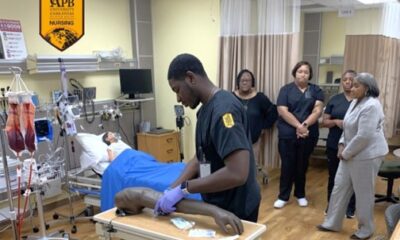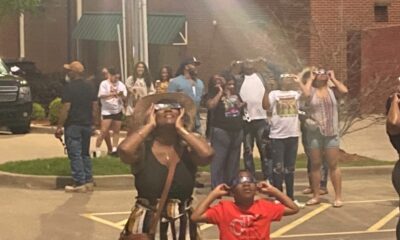Featured
Make Sure You Are Counted on April 1, 2020
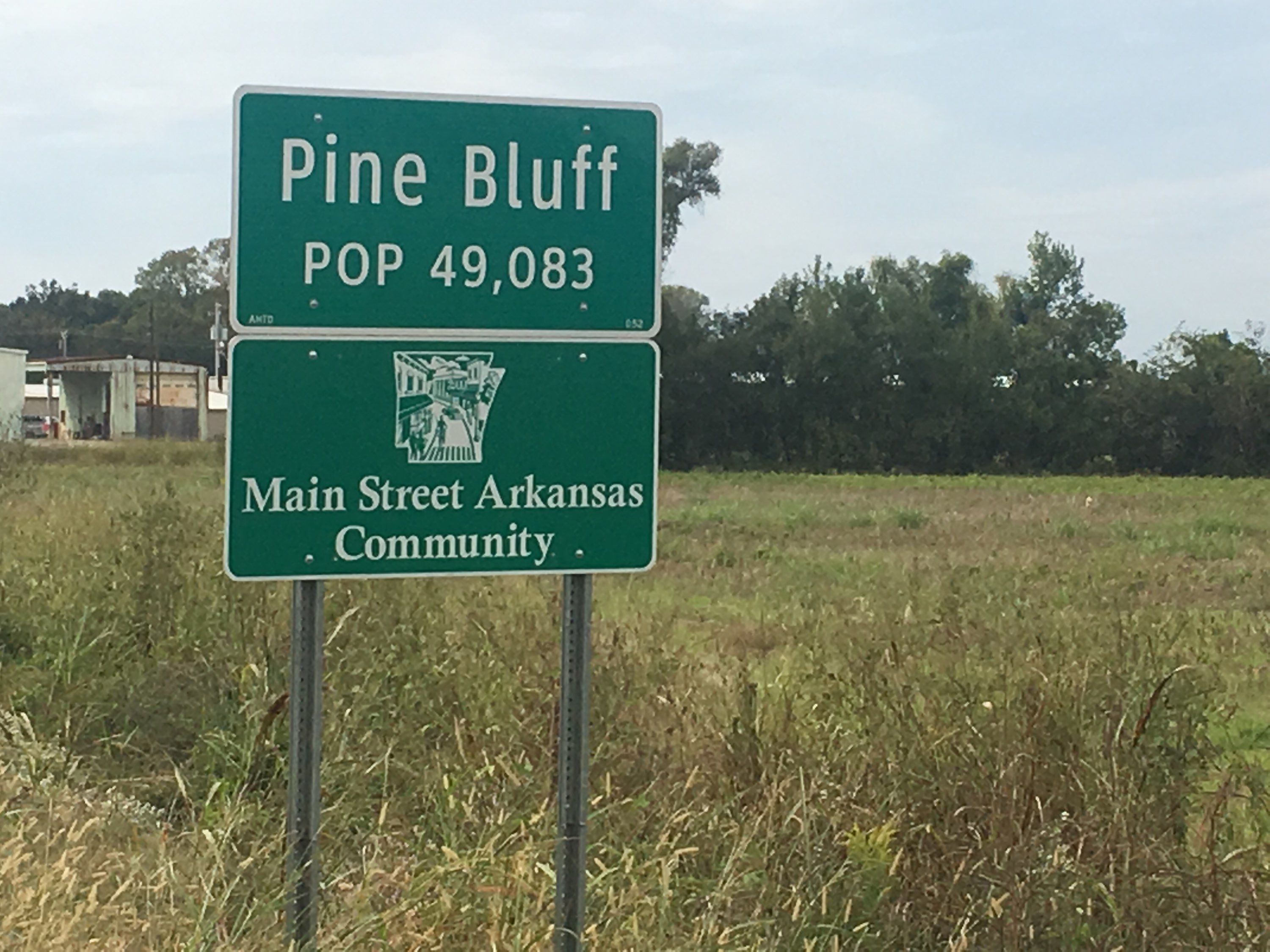
The importance of voting in the 2020 Presidential election is a topic of conversation in Black America with voter registration drives being held around the country regularly, but 2020 is also the year every person living in the United States, regardless of age, has the chance to impact the direction of the city where they live by participating in the Census.
In Pine Bluff, Arkansas, Mayor Shirley Washington established a committee to strategize and create a plan of action for spreading the word about the Census.
“The Census is important to Pine Bluff because it will help ensure fair representation at all levels of government,” said Pine Bluff’s Complete Count Committee chairperson Mary Liddell. “It will impact the funding that we will receive for the next decade…[it] will help our education system, housing and job market as well as our roads and public transit system.”
Liddell added that the information also helps cities “gain a deeper insight about the community…for decision making and planning.”
Pine Bluff is home to the University of Arkansas at Pine Bluff, a Historically Black College and University (HBCU). Mayor Washington and the Chancellor of UAPB, Dr. Laurence Alexander, recorded a public service announcement about the Census that aired during UAPB’s recent Homecoming game. Partnerships between colleges and cities are encouraged to increase awareness.
The African American Mayors Association
The African American Mayors Association held a conference last spring to help mayors prepare for the upcoming 2020 Census which will be the first to offer options for internet and phone responses.
“I’m on a personal mission to make sure everyone is counted in the right place…everyone from our traditional household to the grandma who is raising her children’s children,” Rebecca Briscoe, U.S. Census Bureau Partnership Coordinator for the Houston area told mayors at the conference. “When we think of the Census, we think of two things: power and money. In reference to power, we’re thinking of apportionment. For money, we’re thinking about our critical federal programs. Over 675-billion dollars is allocated for major programs that we depend on such as SNAP, WIC, Medicaid, and the school lunch program.”
In Prairie View, Texas where Prairie View A&M University is located, Mayor David Allen emphasized his staff’s plan to work with the HBCU.
“One of the things we are doing at Prairie View is we set up a team on the campus, and we will coordinate efforts with the team set up in the city.”
Union City, Georgia Mayor Vince Williams said, “What the National League of Cities is doing all around the country is making sure that those representatives at each and every college, no matter how small or how large, is engaged. But, [they are] also equipping them with the necessary tools to make sure that they’re going to every bridge, every extended stay hotel, every project, every luxury subdivision…wherever there are people.”
Census History
The decennial Census is mandated by Article 1, Section 2 of the U.S. Constitution, requiring that “Representatives and direct taxes shall be apportioned among the Several states…according to their respective Numbers.” The first Census after the American Revolution was taken in 1790 when there were close to four-million Americans. For the next 30 years, the U.S. Marshals Office conducted the count, and Census Day was in August. The date was moved to June in 1830, changed to April 15 in 1910, and January 1 in 1920. In 1930 Census Day was changed to April 1 where it remains.
In the 1970 Census, the agency acknowledged a sizable undercount of Black Americans by 1.88 million which was almost 8 percent of the population. The undercount for whites was almost 2 percent.
According to the Census Counts Campaign Director at the Leadership Conference on Civil and Human Rights, there is typically an undercount of Blacks.
“There are some challenges with the Census that are evergreen…one is that non-Hispanic white people, affluent folks, homeowners are generally overcounted in the Census,” Beth Lynk said. “And, communities of color, low-income people, renters, immigrants, single households usually headed by a woman and young children are historically undercounted or considered hard to count in a Census.”
The Attempt to Add a Citizenship Question
Critics say President Donald Trump cast a pall over the upcoming Census when his administration sought to include a citizenship question on the questionnaire. Traditionally, there is not a citizenship question. The Supreme Court rejected White House arguments that the question would help enforce voting rights, declaring discriminatory intent.
Lynk explained, “This citizenship question has already created a lot of fear in communities…and, we know that is going to exacerbate undercounts that already exist.”
For Liddell and her committee, finding every resident in Pine Bluff is paramount. The city reports a population decrease since the last Census in 2010. She is hopeful the use of technology will make it easier to inform residents and encourage them to participate.
She remarked, “The 2020 Census will be the first to offer options for internet and phone responses. Census takers will be equipped with smart devices, and all door-to-door visits will be conducted digitally instead of with pen and paper as in previous decennial censuses.”
Thousands have been hired to canvas areas and locations are being set up for residents who need computer access to complete the online survey on Census Day. For more information about the 2020 Census, you can visit www.census.gov.

-

 Black History5 months ago
Black History5 months agoThe untold story of a Black woman who founded an Alabama hospital during Jim Crow
-
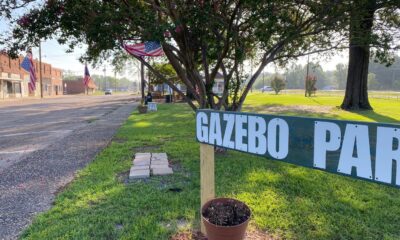
 Featured9 months ago
Featured9 months ago‘No Closure’ In Town Where Five Black Residents Were Either Murdered, Died Suspiciously Or Are Missing
-
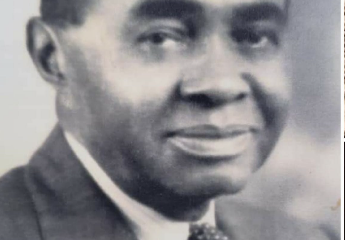
 Black History10 months ago
Black History10 months agoBlack History Lost and Found: New Research Pieces Together the Life of Prominent Texas Surgeon and Activist
-

 Featured9 months ago
Featured9 months agoFounder of “The Folding Chair” Podcast Calls Montgomery’s Brawl ‘Karma’
-

 Featured9 months ago
Featured9 months agoThousands ‘Live Their Dream’ During National Black Business Month
-

 Featured11 months ago
Featured11 months agoJuneteenth And ‘246 Years Of Free Labor’ Are Key To Conversations About Reparations


